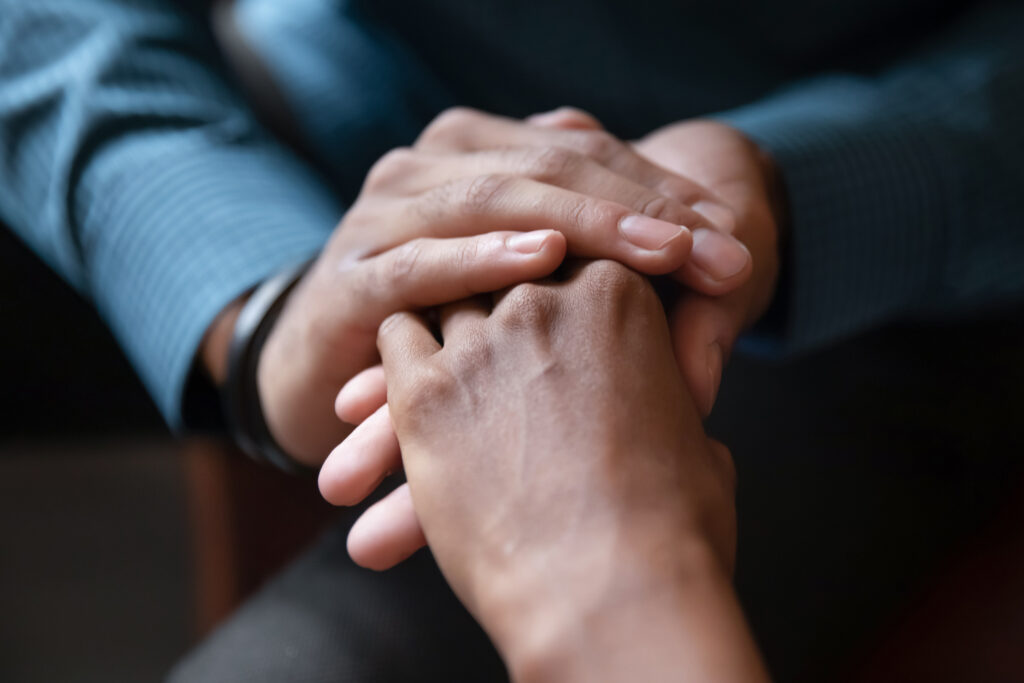If you have a loved one who is struggling with addiction, you might ignore the issue at first or accidentally enable their behavior by failing to set boundaries, avoiding confrontation, or trying to pretend that it’s okay. Maybe you have lived with a loved one who has struggled with addiction for years and refuses to get help, and in desperate moments, you’ve tried to threaten them or issue ultimatums. But when none of this works, you might ask about the best ways of helping a loved one with addiction. Learn how to help a loved one with addiction here.
Casa Serena is a premier women’s drug and alcohol rehab in Santa Barbara. Contact us today to learn more about how our women’s treatment programs can help.
How to Help a Loved One with Addiction
There are several ways that you can learn how to help a loved one with addiction.
Talking to Them About Addiction
In some cases, the person you love may not realize that they have an addiction, in which case you can help them by talking to them about it. When you talk to someone you love about their addiction, you can use professional intervention services or have an open, honest discussion on your own.
If you opt to talk to them on your own, follow these tips:
- Talk to them in a neutral, quiet place
- Don’t talk to them if they are high or drunk
- Talk about how you care deeply for them and you are worried about the effects that addiction is having
- Be prepared for different reactions, including anger directed at you
- Have recovery resources like Casa Serena available if they want to pursue more information
You might have to repeatedly talk to your loved one about addiction.
- You’ll have to talk about your concerns when they demonstrate bad behavior.
- You’ll have to express your fears when they try to cross boundaries.
- You’ll have to talk to them about your feelings and how addiction has impacted your life whenever there is trouble at home.
- You’ll have to continually let them know that help is available and you are there to support them when they are ready.
Give Space
If you are helping a loved one with addiction by talking to them about the issue, they might not respond the way you want or respond right away. And that’s fine. Never pressure your loved one to respond immediately.
Instead, let them know that you are there to help them and you’ll be there to support them when they are ready to make their next decision. Understand that no one appreciates being told that their behavior is wrong, so your loved one might experience some feelings of betrayal or hurt at first but with some time, they might respond more in line with a willingness to get help and gratitude.
Set Boundaries
If someone in your life is struggling with addiction, it’s imperative that you set and enforce healthy boundaries. This can feel like an uphill battle the entire time, but if you really want to help your loved one with their addiction, you need to prevent them from becoming dependent on you; you need to prevent yourself from becoming self-sacrificing and risking your own health.
It’s perfectly fine to enforce boundaries and tell your loved one no, but explain why.
But what about helping a loved one with addiction who already knows they are addicted and isn’t willing to get help?
Take Action with Them
If you are living with someone who knows they have an addiction and they don’t want help, sometimes you have to initiate recovery by taking action yourself. What does this mean?
It means:
- Going to therapy yourself
- Attending family support groups
- Going to AA or NA meetings
- Researching treatment programs and keeping them concealed until your loved one is ready
Sometimes your loved one will see the excellent example you set, and you will learn better ways to help your loved one with addiction, communicate daily, and reinforce granular boundaries that don’t seem consequential at first.
Now what about helping a loved one with addiction who has already tried rehab and relapsed?
Get Continued Help at Casa Serena Treatment
It’s important to remember that up to sixty percent of people will relapse. Even if your loved one has tried some form of treatment and struggled with a relapse, that doesn’t mean they failed.
- There are several types of treatment programs, and in some cases, the treatment plan wasn’t the right level of care.
- In others, the treatment wasn’t the right type of therapy.
- Treatment was received years ago, and significant gains have been made since that time to better understand addiction and provide more comprehensive treatment.
Treatment really works, and if loved ones and families stay involved in treatment and recovery goals, individuals have a higher chance of successfully completing their program and avoiding relapse long-term.
With Casa Serena, your loved one can try gender-specific programs, several levels of care that might be more appropriate for their situations, and involvement in family therapy that increases the likelihood of recovery. Contact Casa Serena today at (805) 966-1260 for help.



